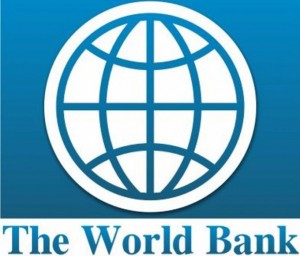World Bank to establish Climate Venture Facility
 The World Bank (WB) is to establish up Climate Venture Facility (CVF) to facilitate and support Ghana’s National Climate Change Policy by mitigating up to 660,000 tons of greenhouse gas emissions in the next ten years.
The World Bank (WB) is to establish up Climate Venture Facility (CVF) to facilitate and support Ghana’s National Climate Change Policy by mitigating up to 660,000 tons of greenhouse gas emissions in the next ten years.
The facility, which is at the design phase, is an investment facility that is expected to have an overall minimum investment capitalization of $7.5 million.
Mr Henry Godfrey Rupiny Kerali, Country Director for Ghana, Liberia, and Sierra Leone disclosed this during a symposium held in Accra to examine and analyse measures that could be taken to ensure that business innovation within the start-up ecosystem in Ghana were stimulated, nurtured and realised.
The day’s event organised by Ghana Climate Innovation Centre (GCIC), assembled individuals and organisations that were successfully incubating innovative ventures and entrepreneurs, developing innovative products and service to support Africa’s transformative future shared their knowledge and experience with their cohorts.
Mr Kerali explained that the CVF was part of the GCIC project and would target growth stage businesses and provide financing to GCIC clients and other climate technology enterprises that demonstrate significant potential to create jobs and address climate challenges.
The Work Bank Country Director remarked that the fund would operate in close coordination with the GCIC, to address the financing gap for promising early-stage climate technology companies in Ghana.
It also aims to develop a deal flow of investible, sustainable, and scalable enterprises that contribute to and attract additional investment to Ghana’s growing climate technology sectors.
He hinted that companies eligible for investment would be climate technology sub-sectors including renewable energy products/services, energy efficiency, waste management, climate-smart agriculture, and water management.
In addition, to diversify and manage portfolio risk, he said the fund would also invest in early-stage Small and Medium Scale Enterprises (SMEs) in other sectors, provided they adopt climate-friendly business practices as developed and implemented through approved climate action plans.
Mr Kerali said CVF would be provided as a grant to be used for the establishment of fund and provision of pre- and post-investment technical assistance to potential investee SMEs.
“The World Bank’s funding contribution to the investment pool would also be structured in a way to catalyse private investment into the fund, thereby growing the overall funding base for investment”, he said.
Madma Ruka Sanusi, Executive Director of GCIC said it was one of the center’s avenues to help the cohorts and other hatchery and start-up ecosystem service providers exposed to the challenges and prepare adequately to respond.
“Whilst we celebrate their success, we want to hear and take lessons from their day-to-day. How are they really doing? What are the privileges and responsibilities of success? and how are they leading and grooming their team and business culture to ensure that the transformative path continues even beyond their own personal business leadership? she said.
Executive Director of GCIC said often most entrepreneurs focused on securing funding and lose sight of other critical issues including technical know-how, personal self-awareness and leadership requirements needed to successfully birth and operate their business idea in the marketplace.
On the supply side, she said business hatchery organisations had a huge role to play in structuring intervention to responsively deliver expertise, advisory services and the seed investments that are tailored to the socio-economic context.
Mr Patrick Awuah, President of Ashesi University said successive governments needed to make it a priority to urgently improve and build news systems including roads, healthcare, railways that would facilitate entrepreneurship.
Touching on steps that the Ashesi University had taken to spur entrepreneurship in the African continent especially in Ghana, he said the school had focused its attention on building a strong technical foundation, train students’ in analytical skills and teamwork.
The GCIC, is an initiative of the World Bank Group’s Climate Technology Program is a pioneering business incubator that seeks to support entrepreneurs and ventures involved in developing profitable and locally-appropriate solutions to climate change mitigation and adaptation in Ghana.
It is supported by the governments of Denmark and the Netherlands and managed by a consortium led by Ashesi University with Ernst & Young, SNV Netherlands Development Organization, and the United Nations University Institute for Natural Resources in Africa.
Source: GNA
